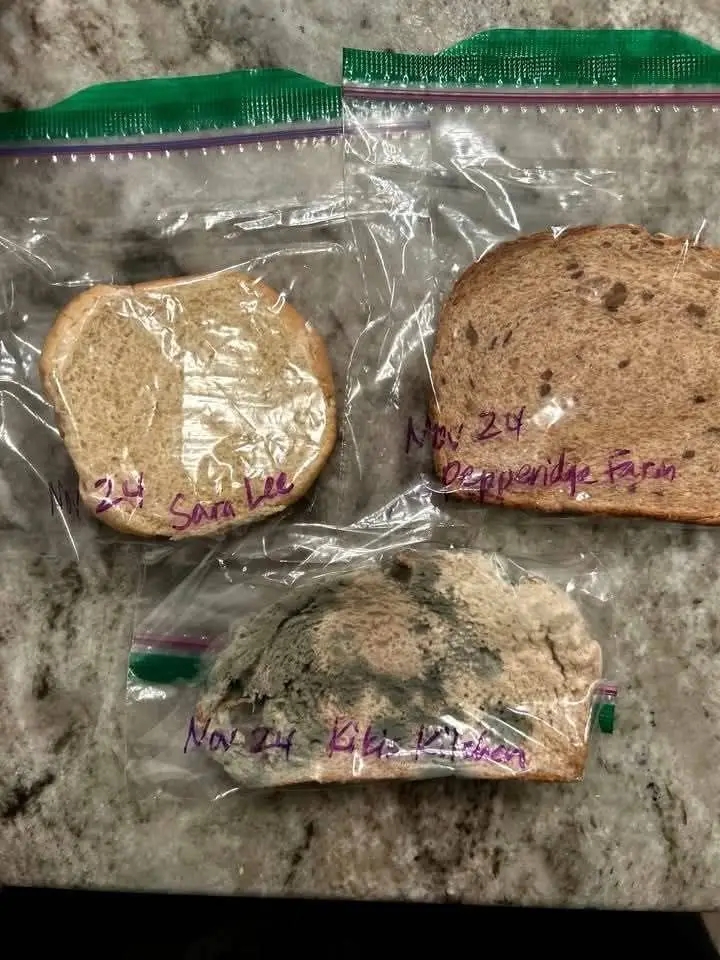Why Doesn’t Some Commercial Bread Mold Quickly?
A real-life experiment conducted by a biology teacher with her students raised questions about
mold growth in bread and the presence of preservatives in food.
She placed slices of different breads since November 24 to monitor mold growth — and the results were surprising.
Experiment Results
- Natural or homemade bread: Mold appeared after just a few weeks, which is normal and expected.
- Commercial bread (Pepperidge Farm): After almost two months, it still showed no sign of mold and looked as if it had just come out of the oven!
Scientific Explanation
- Natural bread: Spoils quickly because it contains no preservatives, making it the perfect environment for bacteria and fungi.
- Commercial bread: Contains preservatives such as Calcium Propionate and Sorbates, along with sealed packaging that reduces moisture and prevents mold growth.
What Do We Learn from This Experiment?
- Mold on bread is a sign that it’s real food without heavy processing.
- Bread that lasts unnaturally long without molding likely contains chemicals or food additives.
- Preservatives extend shelf life but may reduce the nutritional value and raise questions about long-term health effects.
see next page
ADVERTISEMENT

